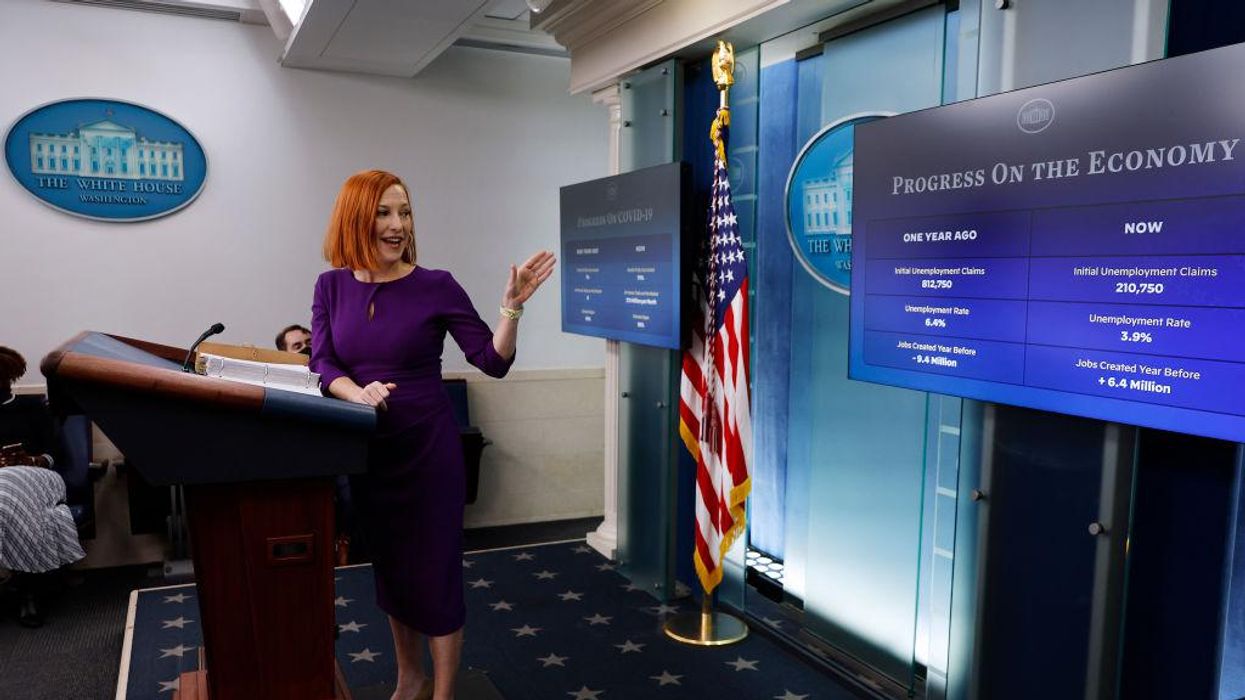
Photo by Chip Somodevilla/Getty Images

Defying economists’ expectations, nearly 300,000 Americans filed for unemployment this past week, as the economy continued to drag its feet.
Findings reported by the Department of Labor early Thursday morning show an increase in initial jobless claims for the third straight week. The Department reported a surprising 286,000 jobless claims for the week of Jan. 15. The sharp rise in unemployment indicates that 55,000 more claims were processed compared to the previous week, which had 231,000. Economists originally projected the week of Jan. 15 to have 250,000 claims. This data shows the largest increase in unemployment since mid-October and suggests an even slower recovery from COVID than initially suggested. Furthermore, the increasing spread of the Omicron variant has not made economic recovery any easier.
This wintertime increase in unemployment continues the recent trend of lackluster job growth. Last December, the American economy added 199,000 jobs despite economists projecting the addition of 422,000 non-farm jobs.
According to the Wall Street Journal, the continuing spread of COVID-19’s variants throughout the country has slowed job growth for an extended period despite a seemingly perpetual glut of job openings. There are roughly 60% more job openings than before the pandemic, yet joblessness continues to increase. Americans are even quitting their jobs in record numbers.
In addition, this past December saw the greatest increase in inflation since 1982. Despite claims made by White House leadership, everyday expenses continue to increase, and the private sector struggles to return to its pre-COVID operational capacity. In 2021, wages grew by 4.7% and unemployment dropped to 3.9%, while inflation hit 7% as of December.
However, there is reason to be optimistic. If Omicron is, in fact, the last major wave of COVID-19, then the economy could potentially recover around springtime.
David Kelly, chief global strategist for JPMorgan Funds, speculated that life could return to normal by March and that the “second quarter should see a solid rebound in economic activity.” Kelly warned that if COVID continues to linger beyond the Omicron variant, economic suppression could continue throughout the rest of the year.
Despite the Omicron variant being characterized by its mildness, it continues to spread throughout the United States and has inspired some parts of the country to renew intense COVID restrictions. Several major cities instituted vaccine mandates in an attempt to prevent the further spread of COVID. These mandates — colloquially referred to as “vaccine passports” — prohibit unvaccinated individuals from participating in society despite it being well documented that one’s vaccination status does not impede the Omicron variant from spreading.
These COVID restrictions will, no doubt, hinder economic recovery as they prevent thousands of Americans from participating in revenue-generating ventures, which in turn will negatively impact employment numbers.